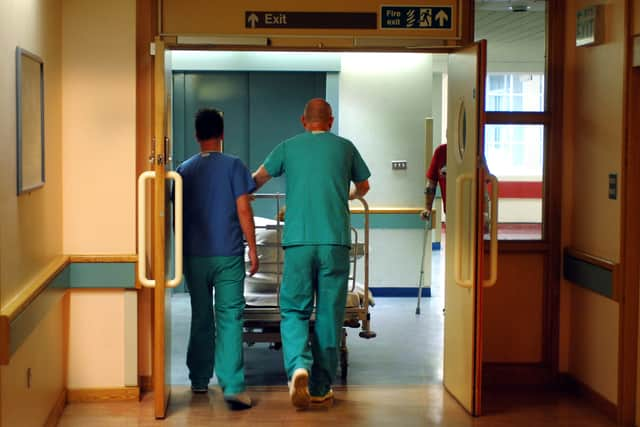Liverpool University Hospitals Trust cares for 100 COVID-19 patients in hospital
and live on Freeview channel 276
Liverpool University Hospitals Trust was caring for 100 coronavirus patients in hospital on Tuesday, the latest figures show.
NHS Englanddata shows the number of people being treated in hospital for COVID-19 by 08:00 on December 21, was up from 88 on the same day the previous week.
Advertisement
Hide AdAdvertisement
Hide AdThe Trust covers the Royal Liverpool University Hospital, Aintree University Hospital and Broadgreen Hospital.
Loading....
The number of beds at Liverpool University Hospitals NHS Foundation Trust occupied by people who tested positive for COVID-19 has actually decreased by 4% in the last four weeks – 28 days ago, there were 104.
Liverpool public health director professor Matt Ashton says the city is set to see a “sharp spike” in coronavirus cases in January, putting the NHS under a lot of pressure.
The national statistics
Across England there were 6,902 people in hospital with COVID as of December 21, with 757 of them in mechanical ventilation beds.
Advertisement
Hide AdAdvertisement
Hide AdThe number of COVID-19 patients hospitalised nationally has increased by 10% in the last four weeks, while the number on mechanical ventilators has decreased by 3%.


The figures also show that 82 new COVID-19 patients were admitted to hospital in Liverpool University Hospitals NHS Foundation Trust in the week to December 19. This was up from 70 in the previous seven days.
Get vaccinated to ease strain on NHS
Director of public health for Liverpool, Matt Ashton said: “The COVID-19 infection rate in Liverpool ishigh and increasing. This is likely to result in significant disruption across the city over the next couple of weeks.
“I would strongly encourage everybody to get vaccinated, and to get boosted, as soon as possible.We have a good offer for both bookable and drop-in vaccination in Liverpool.”
Omicron in Liverpool
Advertisement
Hide AdAdvertisement
Hide AdThe Liverpool Health Protection Board (LHPB), which oversees the city’s response to the COVID pandemic, says Omicron is now “a very serious threat” in the region.
“The Omicron variant is spreading at an extraordinary rate – faster than what we have seen before, and is causing local outbreaks in our communities, and disruption to health and care services, and to the wider economy,” the LHPB said.
“The Omicron variant rate is doubling in less than two days in the North West, and almost a third of COVID cases are now Omicron variant. The reality is therefore that we are highly likely to be facing a record peak of cases in a few weeks.”
Comment Guidelines
National World encourages reader discussion on our stories. User feedback, insights and back-and-forth exchanges add a rich layer of context to reporting. Please review our Community Guidelines before commenting.